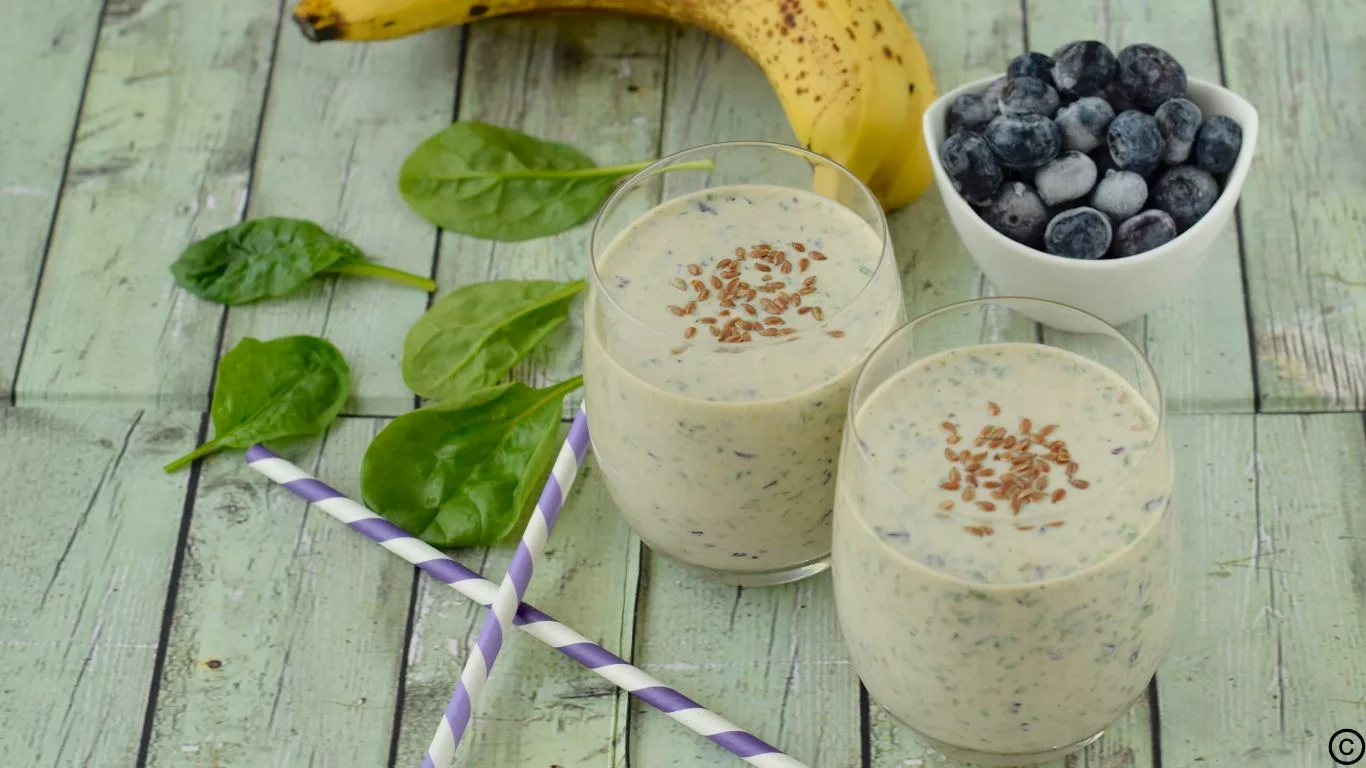Is Yogurt Good for GERD? – Everything You Need to Know
Can yogurt be your ally in managing GERD? If you’re dealing with acid reflux, you might wonder whether this creamy treat can offer relief or make things worse. In this article, we’re diving into the details of how yogurt affects GERD and whether it’s something you can safely enjoy.
Yogurt. It’s creamy, delicious, and often touted as a great food for digestive health. But if you suffer from GERD (Gastroesophageal Reflux Disease), the question of whether yogurt is a good choice for your diet can be a bit more complicated. GERD is a chronic condition where stomach acid frequently flows back into the esophagus, causing discomfort and a range of symptoms. So, is yogurt good for GERD? Let’s explore that question in a more casual, friendly way, just like if we were chatting over a cup of tea.
What is GERD?
Before we get into the yogurt debate, let’s quickly recap what GERD is for those who might not be familiar with it. GERD is a condition that involves frequent acid reflux. Basically, stomach acid backs up into the esophagus, leading to symptoms like heartburn, chest pain, regurgitation of food, difficulty swallowing, and even a sour taste in the mouth. It’s something that can affect daily life, and managing it often involves a combination of medications, lifestyle changes, and, of course, diet.
If you’re one of the many people managing GERD, you’ve probably already had to make adjustments to your eating habits. But is yogurt one of those foods that can actually help or make things worse?
Is Yogurt Good for GERD?
The short answer is… it depends. While yogurt can be beneficial for some people with GERD, it might cause problems for others. The key factor is how your body reacts to dairy and how the yogurt is prepared.
Yogurt and its Benefits for GERD
Let’s start with the positives. There are a few reasons yogurt can be good for GERD:
- Probiotics to Support Digestion: Yogurt, especially the kind that contains live and active cultures, is packed with probiotics. These are beneficial bacteria that can support your digestive system. For people with GERD, maintaining a healthy balance of gut bacteria can help improve digestion and reduce symptoms of reflux.
- Cool and Soothing: If you’ve ever had a sore throat from acid reflux or heartburn, you know that the cooling effect of yogurt can be a nice relief. Its creamy texture helps coat the throat, which might provide some short-term comfort when dealing with irritation caused by acid reflux.
- Source of Protein: Yogurt is a great source of protein, which can help keep you feeling full and satisfied without putting too much strain on your digestive system. Protein-rich foods are typically less likely to trigger acid reflux than fatty or fried foods.
- Calcium-Rich: Calcium is important for overall health, and it can also help neutralize stomach acid to some extent. Eating yogurt, which is rich in calcium, might provide a mild benefit in managing your acid reflux.
How Yogurt Could Worsen GERD Symptoms
On the flip side, yogurt isn’t a miracle food for everyone with GERD. Here are some reasons it might not be the best choice:
- Dairy Sensitivity: Not everyone can tolerate dairy, and some people find that dairy products can trigger or worsen their GERD symptoms. Full-fat yogurt, in particular, can increase the risk of reflux because it can be harder to digest and may stimulate acid production.
- Added Sugars: Many flavored yogurts, especially the fruity ones, come with added sugars that could potentially irritate your stomach lining and exacerbate acid reflux. These sugars might also contribute to weight gain, which is a risk factor for worsening GERD.
- Fat Content: As mentioned, full-fat yogurt is not always the best option for people with GERD. High-fat foods are known to relax the lower esophageal sphincter (LES), the muscle that keeps acid from coming back up into the esophagus. When the LES is relaxed, acid reflux is more likely to happen.
What Type of Yogurt is Best for GERD?
If you’re hoping to add yogurt to your GERD-friendly diet, there are a few guidelines you should follow to minimize the risk of aggravating your symptoms:
- Go for Low-Fat or Non-Fat Yogurt: Opt for low-fat or non-fat yogurt whenever possible. These options are less likely to trigger reflux compared to their full-fat counterparts. The reduced fat content means the yogurt won’t stimulate excessive acid production, which is a good thing for anyone dealing with GERD.
- Choose Plain Yogurt: Plain yogurt is your best bet. Flavored yogurts are often loaded with added sugars or artificial sweeteners, both of which can be problematic for GERD. Stick to plain, unsweetened yogurt and sweeten it yourself with a small amount of honey or fresh fruit if you like.
- Greek Yogurt: A Good Option? Greek yogurt can be a good choice for GERD sufferers. It’s thicker, richer in protein, and usually lower in sugar compared to regular yogurt. The probiotics in Greek yogurt can help maintain gut health without aggravating your reflux symptoms. However, some people might still find dairy problematic, so it’s important to listen to your body and experiment with different types to see what works best for you.
- Lactose-Free Yogurt: If you have trouble digesting lactose, you might want to try lactose-free yogurt. Lactose intolerance can contribute to bloating and discomfort, which might worsen GERD symptoms. Lactose-free yogurt can provide the benefits of yogurt without the digestive upset.
Can Yogurt Help Relieve GERD Symptoms?
If you’re dealing with occasional heartburn or reflux, yogurt can potentially help soothe your symptoms temporarily. The coolness of yogurt can coat the esophagus and provide some relief from the irritation caused by acid reflux. Additionally, the probiotics in yogurt can support overall gut health and digestion, which might help reduce the frequency of GERD flare-ups.
But remember, yogurt isn’t a cure-all. If you’re experiencing chronic GERD symptoms, it’s important to speak with your doctor or a registered dietitian. They can help you figure out a comprehensive diet plan and recommend lifestyle changes to manage GERD more effectively.
Tips for Including Yogurt in Your GERD Diet
If you want to give yogurt a try while managing GERD, here are some simple tips:
- Stick to plain, low-fat yogurt or Greek yogurt for the best chance of avoiding flare-ups.
- Add a small amount of honey or fresh fruit to plain yogurt to enhance flavor without relying on added sugars.
- Avoid pairing yogurt with spicy or acidic foods, which might irritate your stomach.
- Monitor your portion sizes—sometimes, eating too much of any food can trigger symptoms.
Conclusion
So, is yogurt good for GERD? For many people, yes, yogurt can be a helpful addition to a GERD-friendly diet, especially when it’s low-fat, plain, and free from added sugars. It offers digestive benefits through probiotics, soothes the throat, and is easy on the stomach. However, if you find that dairy or yogurt exacerbates your symptoms, it might be worth avoiding or switching to lactose-free varieties.
At the end of the day, every person with GERD has a different experience, so what works for one person may not work for another. It’s all about listening to your body and finding what helps you manage your symptoms best.
Appendices
FAQs
- Can yogurt help with acid reflux? Yes, yogurt may help soothe the esophagus and provide temporary relief from acid reflux symptoms due to its cooling texture and probiotics.
- Is full-fat yogurt bad for GERD? Full-fat yogurt can be harder to digest and may trigger reflux, so it’s better to opt for low-fat or non-fat yogurt if you have GERD.
- Can I eat flavored yogurt with GERD? Flavored yogurts often contain added sugars, which can worsen GERD. It’s better to choose plain yogurt and add your own sweeteners like honey or fresh fruit.
- Should I avoid yogurt if I have lactose intolerance? If you’re lactose intolerant, you can try lactose-free yogurt to enjoy the benefits of yogurt without the digestive discomfort.
- What other foods can help with GERD? Other GERD-friendly foods include oatmeal, ginger, lean proteins, bananas, and melons. Avoid spicy, fatty, or citrus-heavy foods.
References
- American College of Gastroenterology. (2023). Managing GERD with Diet.
- Smith, R. & Cooper, J. (2021). The Role of Dairy in GERD Treatment. Journal of Digestive Health.
- National Institute of Diabetes and Digestive and Kidney Diseases. (2024). GERD: Dietary Changes to Help Manage Symptoms.
Disclaimer:
The information in this article is intended for educational purposes only and should not replace professional medical advice. Always consult your doctor or a healthcare provider before making significant changes to your diet or treatment plan, especially if you have a condition like GERD. Individual experiences may vary.

Camellia Wulansari is a dedicated health writer specializing in digestive disorders, contributing valuable insights and information to the health and wellness community. With a passion for promoting well-being through knowledge, Camellia serves as a reliable source of expert content on healthusias.com.






